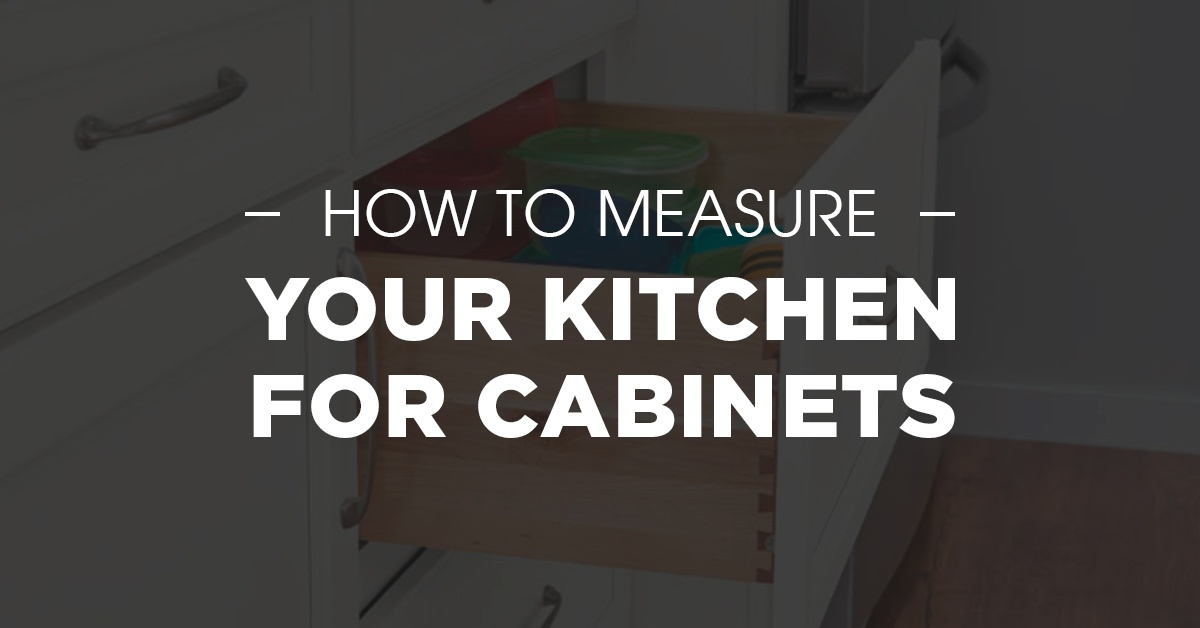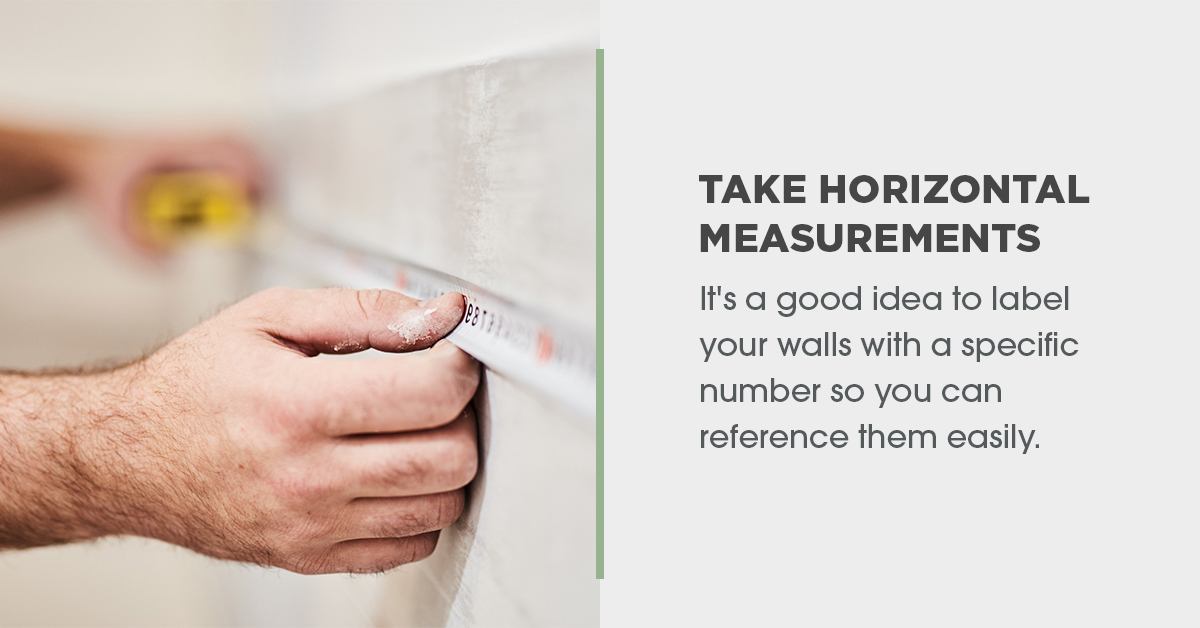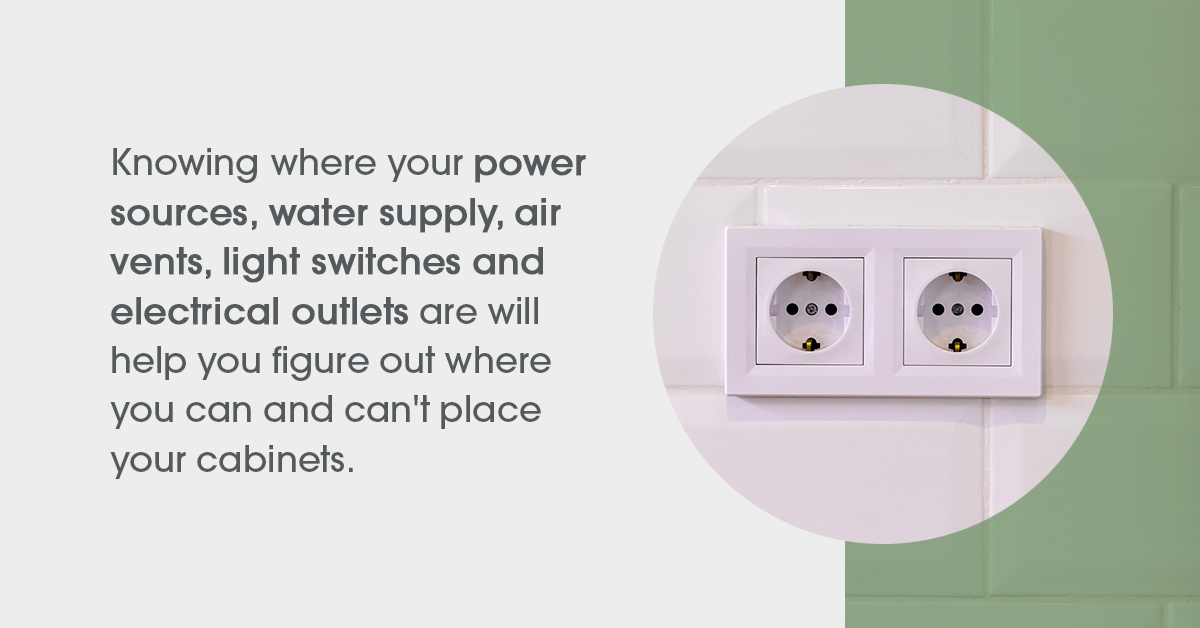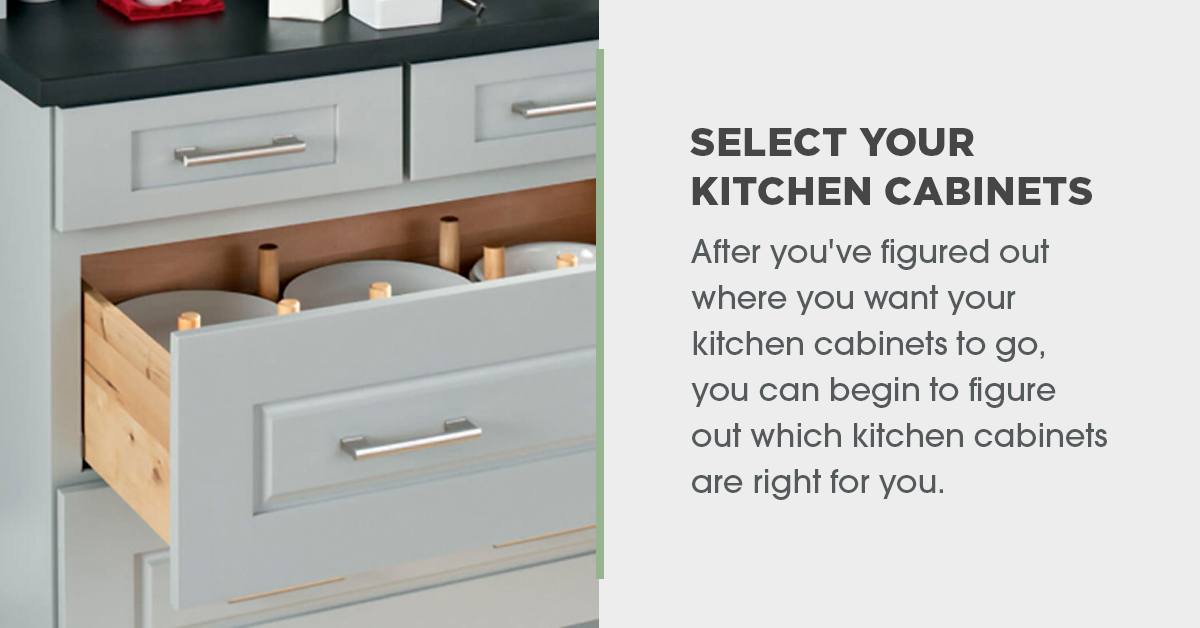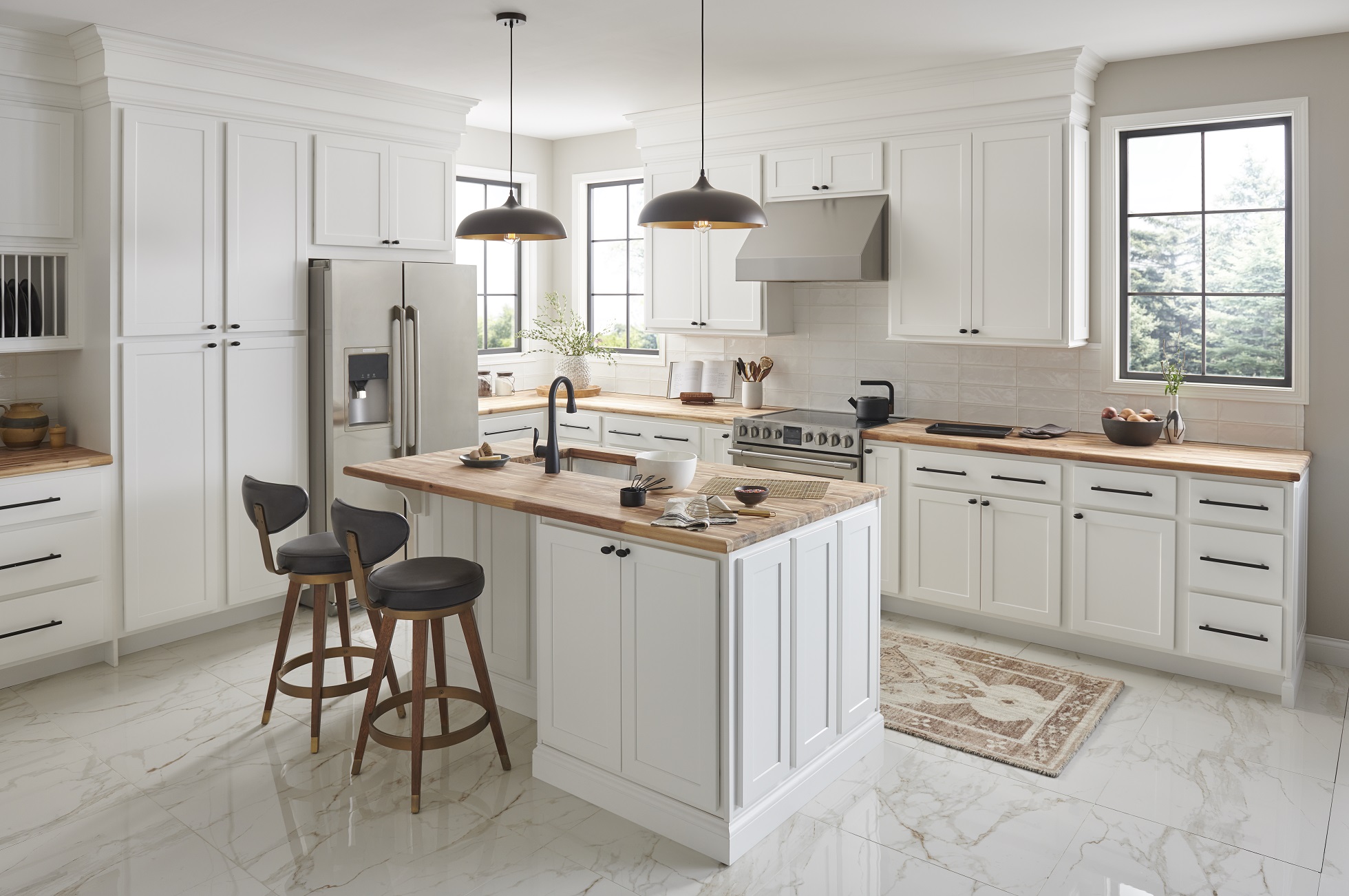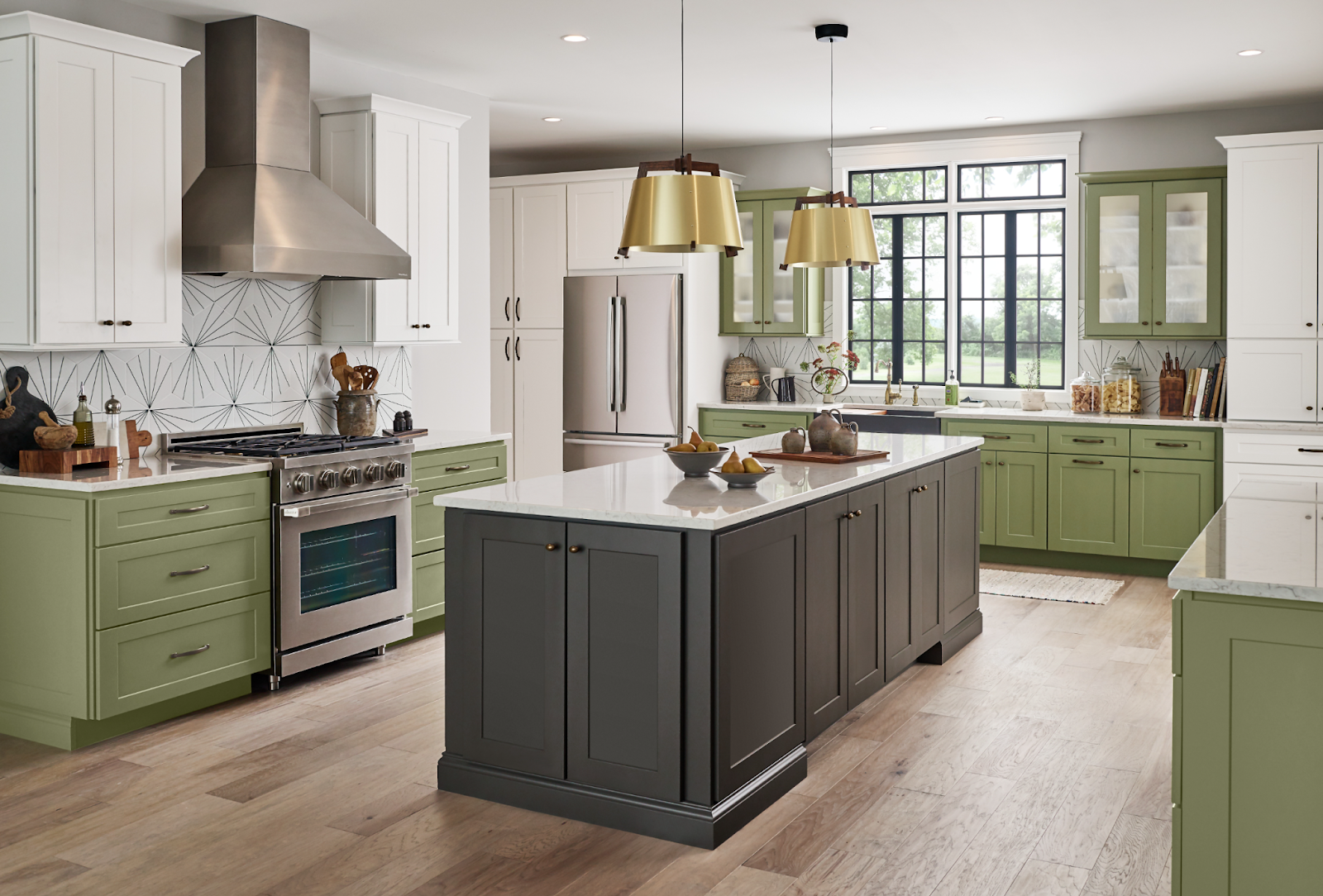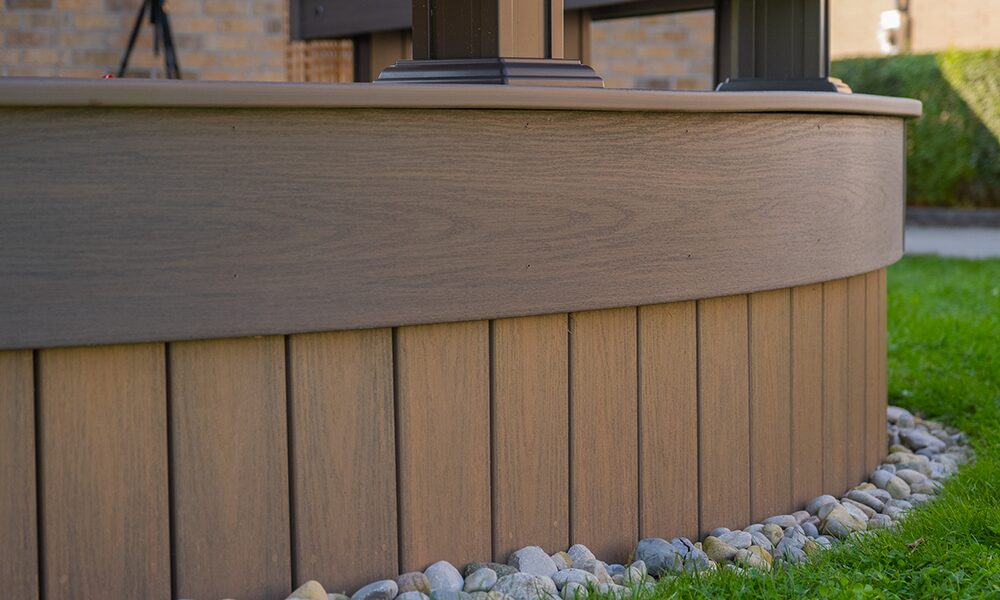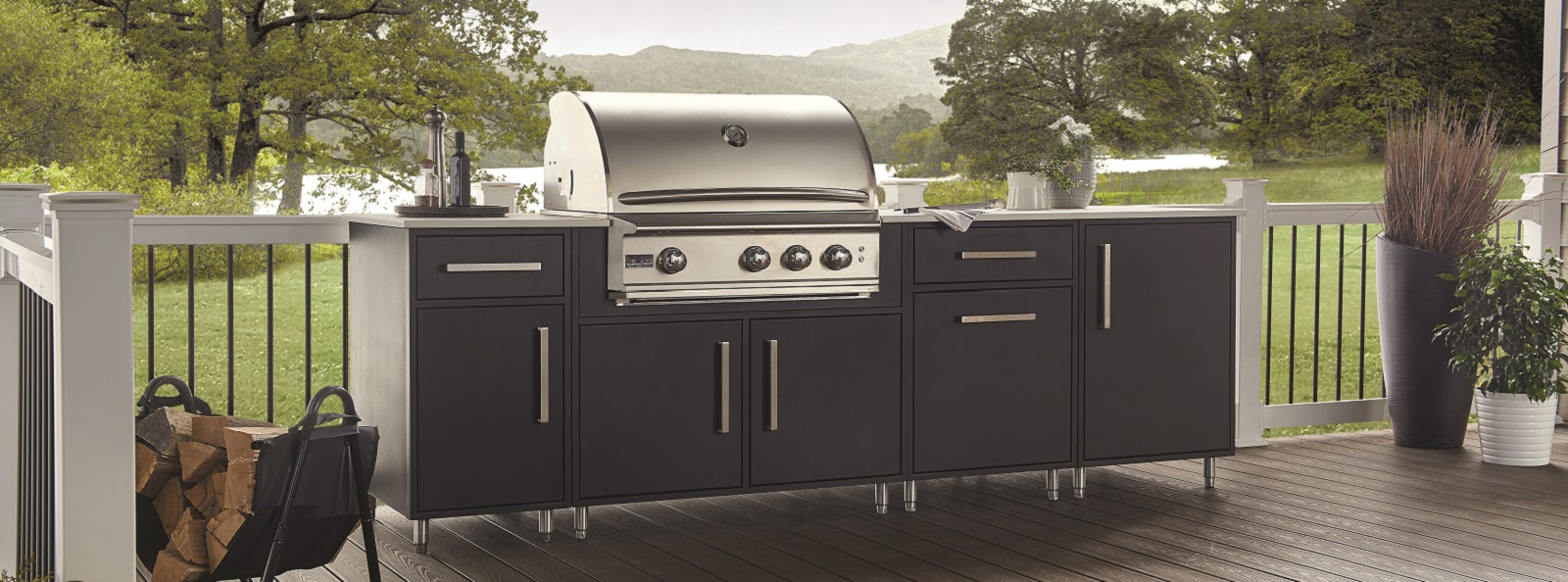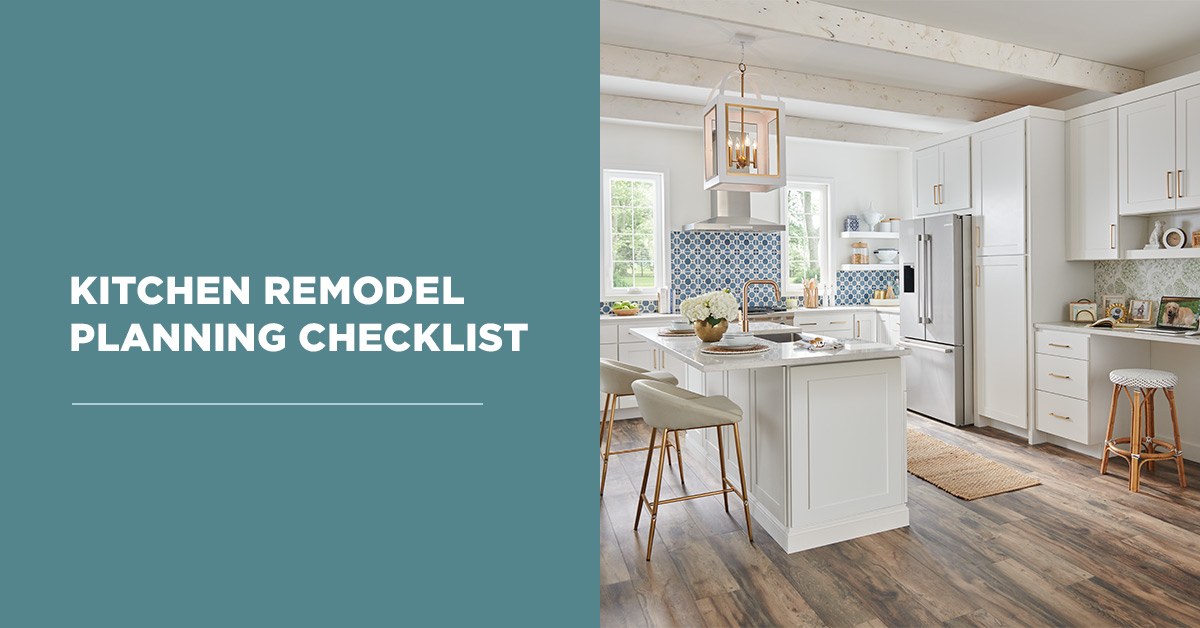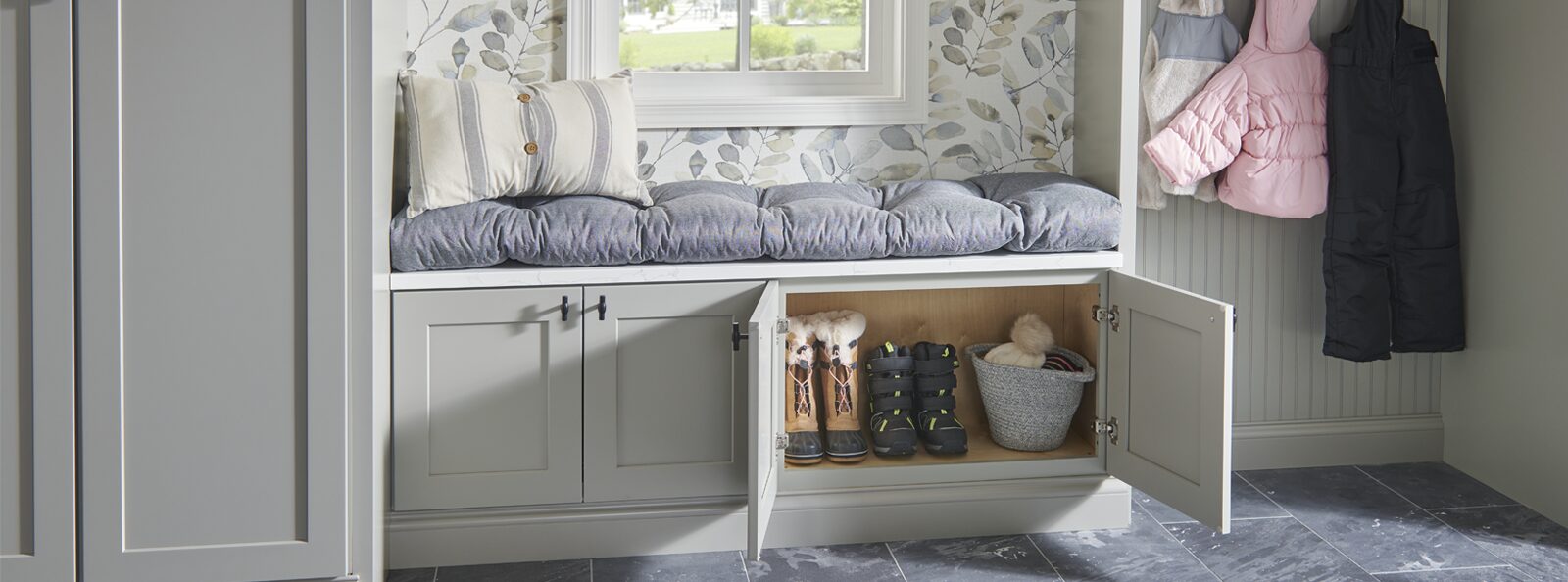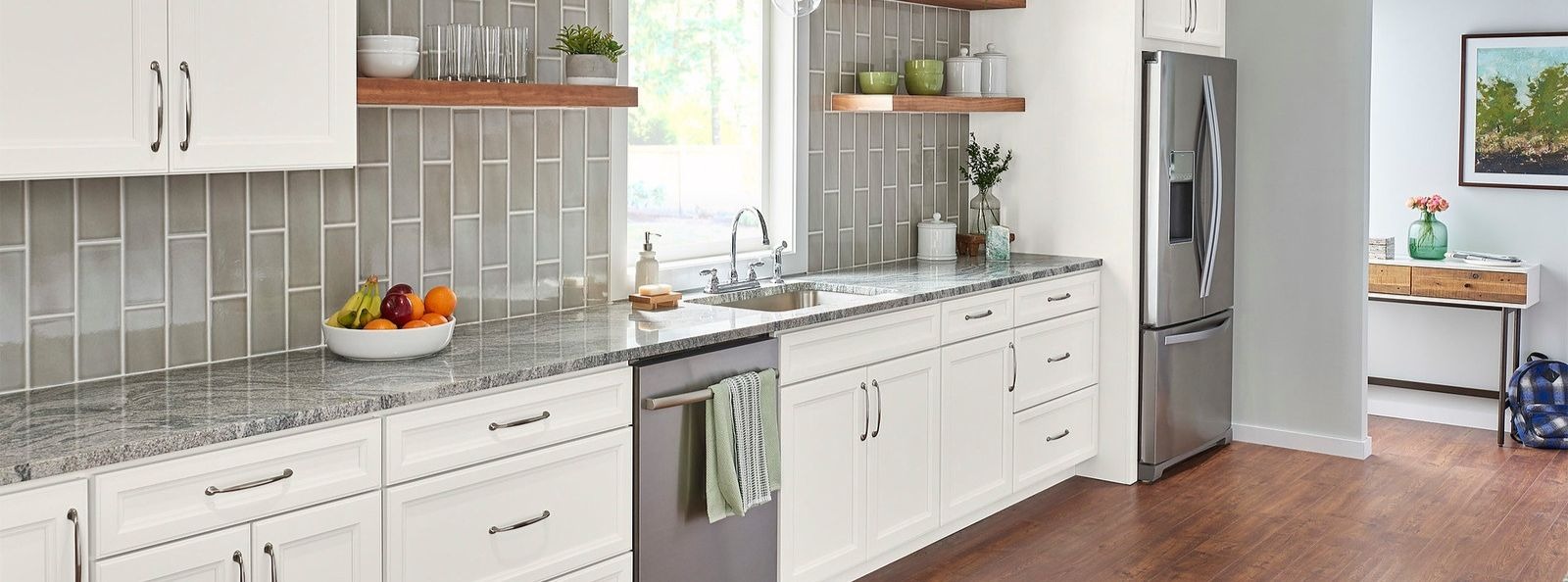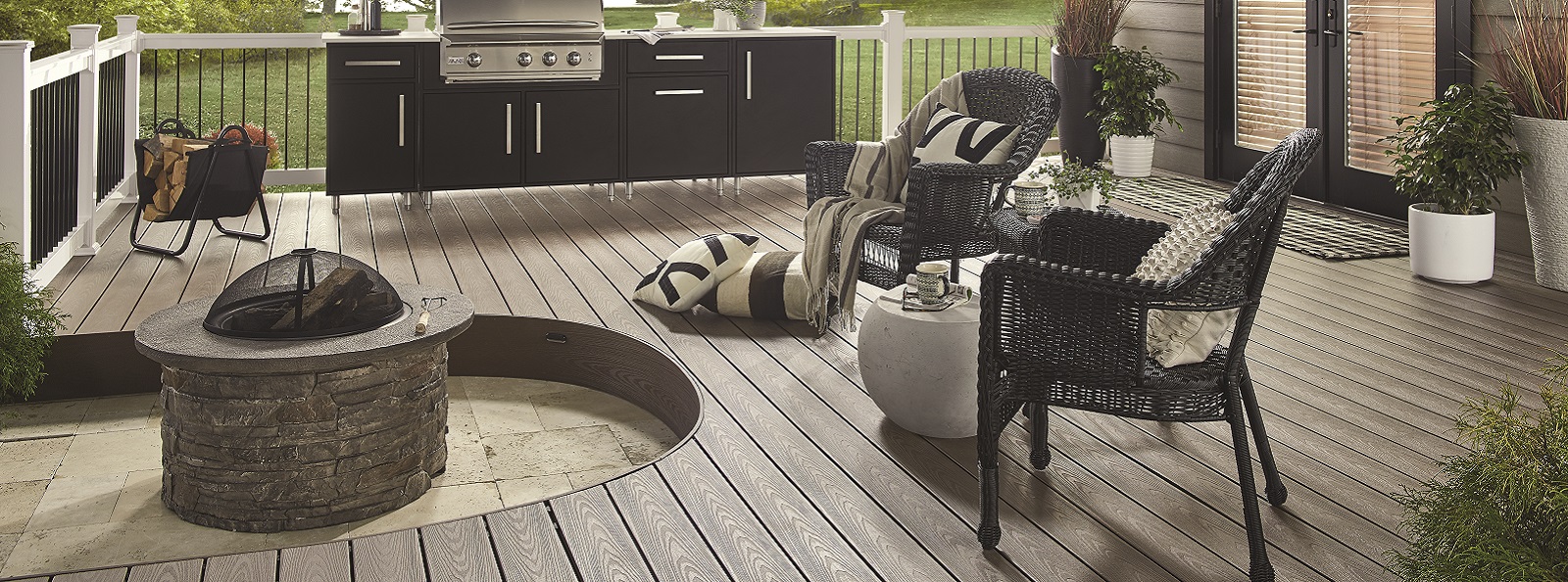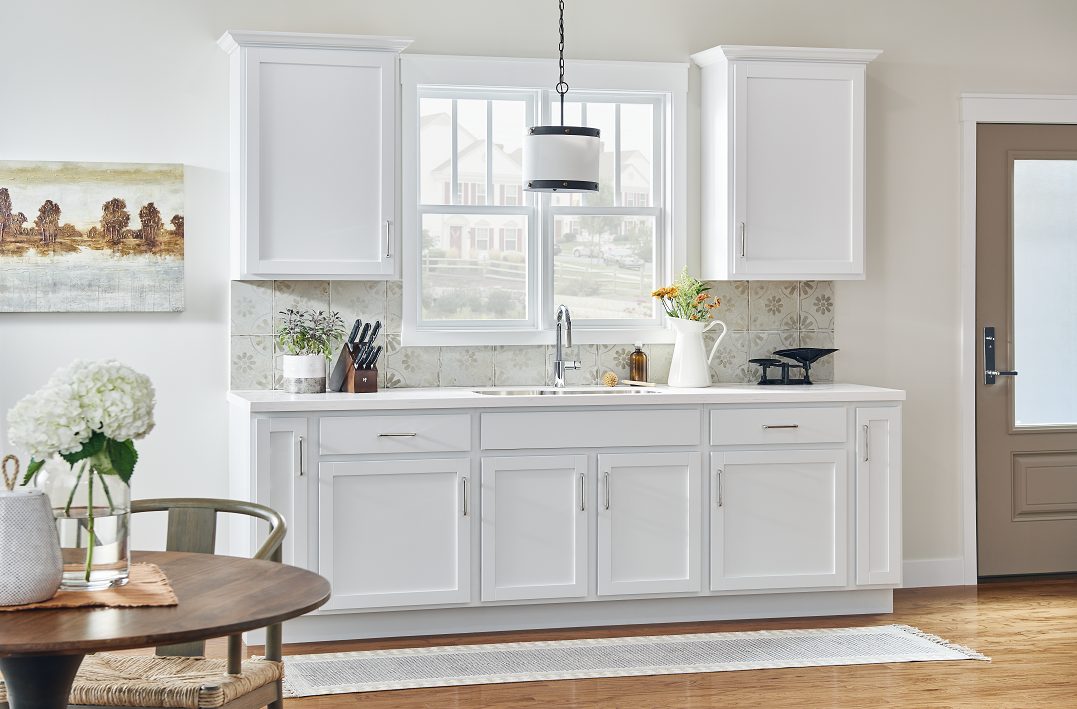
HOW TO MEASURE YOUR KITCHEN FOR CABINETS
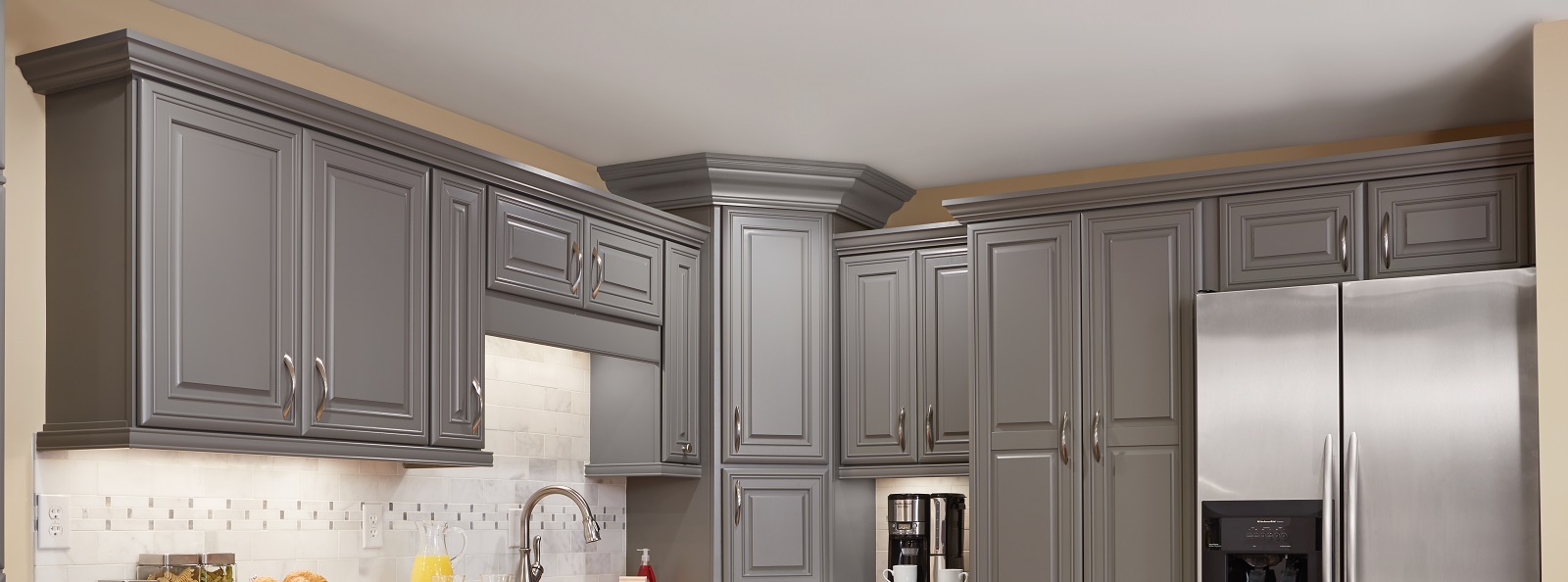
HOW TO MEASURE YOUR KITCHEN FOR CABINETS
If you’re looking to revamp your kitchen’s look, you might want to start with new kitchen cabinets. However, knowing how to measure for cabinets in kitchens is an essential skill to have when you want to take your kitchen’s appearance and functionality to the next level.
In this guide, we’ll provide you with the skills you need to measure your kitchen properly.
STEPS TO MEASURE YOUR KITCHEN FOR CABINETS
To begin the measuring process, you’ll need to gather:
- Grid paper
- A tape measure
- A pencil or pen
After collecting the materials, follow these seven steps to measure your kitchen for cabinets:
1. DRAW YOUR FLOOR PLAN
The first step you have to take to begin measuring your kitchen for cabinets is to draw up a floor plan. With your pen or pencil, sketch the layout of your kitchen onto a piece of grid paper. On this floor plan, you’ll need to identify the locations of:
- Windows
- Doors
- Light switches
- Water lines
- Gas lines
- Drain lines
- Vents for heating and air
- Hood vents
- Electrical outlets
The first draft of your floor plan doesn’t have to be to scale, but you should make sure it conveys the layout accurately and clearly.
2. TAKE HORIZONTAL MEASUREMENTS
With the layout taken down, you can begin measuring your space. Your measurements should be entirely in inches. For example, instead of recording that a wall is four feet long, you should record that it is 48 inches long.
The first horizontal measurements you’ll need to make are the full wall lengths. It’s best to start taking horizontal measurements from one of the adjoining coers of the wall. Measure clockwise, moving from edge to edge with your tape measure. You’ll want to skip over appliances, windows and other fixtures. It’s a good idea to label your walls with a specific number so you can reference them easily.
Once you’ve got the full length down, you’ll then move on to measuring the wall in smaller segments. In this stage, you’ll measure every opening. To get these measurements, you’ll measure from one outside trim edge to the next outside trim edge. Ensure you include any molding or trim in the smaller wall segment into the measurement. Like the larger walls, number your openings for simple referencing. You’ll need to record both the full and partial length measurements on your floor plan.
3. TAKE VERTICAL MEASUREMENTS
After recording your horizontal measurements, you’ll need to do the same for your vertical measurements. In your initial measurements, you’ll measure from the floor to windowsill. Next, you’ll measure from windowsill to the window’s top, and finally, from the top of the window to the ceiling.
The final step is to measure from the floor to the ceiling. Since some homes will have different ceiling heights in the same room, you should take at least three different floor-to-ceiling measurements.
4. NOTE OBSTRUCTIONS
With the measurements in place, you should note any obstructions alongside your walls, including vents, pipes and radiators. It’s essential to note obstructions because they usually can’t be removed, which can influence where you place your cabinets.
5. IDENTIFY APPLIANCES AND UTILITIES
In your kitchen, you’ll want to determine what large appliances and utilities you’re going to want to keep in the kitchen after you’ve installed your newest cabinets. Knowing where your power sources, water supply, air vents, light switches and electrical outlets are will help you figure out where you can and can’t place your cabinets.
Other than marking the location of these utilities and appliances on your floor plan, you should also indicate where their center points are. The center point of an appliance will usually be the point where the gas line or plumbing line begins.
6. PLAN YOUR KITCHEN LAYOUT
With all your measurements and notes handy, you can begin to plan out how your kitchen is going to look with your new cabinets. Since you know how much space to work with, you can pick out areas where you want to include your new cabinets.
7. SELECT YOUR KITCHEN CABINETS
After you’ve figured out where you want your kitchen cabinets to go, you can begin to figure out which kitchen cabinets are right for you. There’s a lot of different options available for you to choose from. Consider a variety of cabinets before you make a decision. Just make sure their dimensions fit before you order them.
TIPS FOR MEASURING YOUR KITCHEN FOR CABINETS
While measuring for your cabinets, keep these helpful tips in mind:
- Take horizontal measurements at the same distance from the floor: You’ll need to take all the horizontal measurements of your kitchen walls at the same height. By taking your measurements at the same distance, you’ll make sure they stay consistent across all the walls you measure.
- Make accurate measurements with the right tools: To be as accurate as possible, get a reliable tape measure and pencil to help you take measurements. Additionally, use graph paper and a straight edge to help you draw up a floor plan that best represents your kitchen.
- Measure clockwise: To ensure you never miss a wall or forget where you left off, it’s best practice to measure your walls clockwise. As you move around the room, you should be labeling walls, doors and windows with numbers to keep everything as accurate as possible.
- Don’t forget the trim: When you measure windows or doors, remember that its trim, or casing, is considered part of the window or door. For example, you’d measure a window from one end of its trim to the opposite side to get the window’s length or height.
- Find the centerline: You should know the centerline of any permanent fixtures in your kitchen. Measure for the centerline of your doors, closets, ducts, electrical outlets, wall oven, sinks, and windows.
FIND A DEALER
Now that you know how to measure your kitchen cabinets, you’re ready to find the ones that will revitalize your kitchen. Instead of measuring cabinets and hand-making them yourself, tu to Wolf Home Products for all your cabinet needs. At Wolf Home Products, we have 50 door styles and more than 60 finish options. Any kitchen cabinets you purchase from Wolf Home Products are going to be both decorative and functional.
We’re so confident you’ll love our products, we offer a limited lifetime warranty on our cabinets. Additionally, you can trust your kitchen cabinets will be delivered on time, to keep your projects on track. Find one of our local dealers to get started today.
